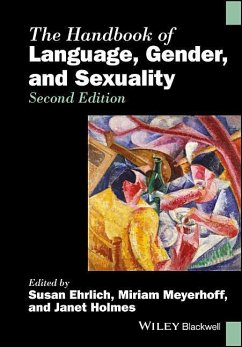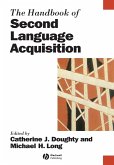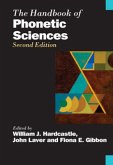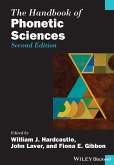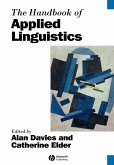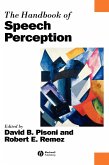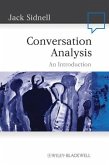"The second edition should certainly enhance the handbook's reputation as an invaluable teaching and learning resource." Journal of Sociolinguistics, July 2015 "This is what a handbook should be: authoritative, inclusive, and accessible... this updated version includes summaries of some of the most important debates and concepts of recent years without becoming bogged down in them. I will definitely use this handbook as my first reference of choice when students and colleagues ask me where to start in this particular field." Scott Kiesling, University of Pittsburgh, USA Written by leading specialists in the field, The Handbook of Language, Gender, and Sexuality is a collection of articles examining the dynamic ways in which women and men develop and manage gendered identities through their talk. The Handbook has been updated extensively with a new introduction and chapters focusing on key themes and issues across historical periods, and methodologies and cutting-edge research topics in the field today. In-depth overviews explore the study of language and gender worldwide, and the collection features data and case studies from interactions across a range of social contexts and communities. This comprehensive resource provides a state-of-the-art overview of language and gender for established scholars and an essential introduction to the field for advanced undergraduate and graduate students in a wide range of disciplines.
"A hugely valuable resource for teachers, students and researchers: nuanced, extensively referenced, and written with admirable clarity. This 2nd, thoroughly updated edition, takes sexuality fully on board together with a range of global research contexts. An intellectual pleasure."
--Jane Sunderland, Lancaster University, UK
"This is what a handbook should be: authoritative, inclusive, and accessible... this updated version includes summaries of some of the most important debates and concepts of recent years without becoming bogged down in them. I will definitely use this handbook as my first reference of choice when students and colleagues ask me where to start in this particular field."
--Scott Kiesling, University of Pittsburgh
--Jane Sunderland, Lancaster University, UK
"This is what a handbook should be: authoritative, inclusive, and accessible... this updated version includes summaries of some of the most important debates and concepts of recent years without becoming bogged down in them. I will definitely use this handbook as my first reference of choice when students and colleagues ask me where to start in this particular field."
--Scott Kiesling, University of Pittsburgh

